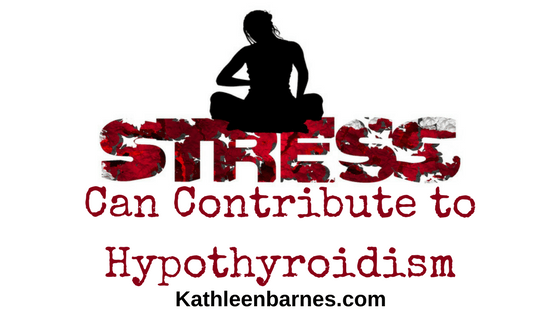Are you stressed?
I’m sure most of you said, “Oh, yeah!”
If you said you’re not stressed, I’d probably cock my eyebrow at you or assume you are a Zen master.
Stress is a part of our every day lives. It’s unavoidable. It’s not a question of whether we have stress, but how we cope with it.
You’ve no doubt heard of the fight-or-flight syndrome. That’s the stress response hard wired into our bodies to help us in emergencies and times of extreme crisis. You’ve heard of the mother lifting the car off her toddler or the soldier who carries his wounded buddy miles through a combat zone.
You’re probably pretty good at recognizing the stressors of modern life, the feeling that accompanies a fight with your spouse, a child’s bad report card, a boss’s demand for you to put in overtime, traffic jams, financial worries and more. The body interprets all of these as threats and the adrenals send our hormones that respond accordingly.
We’re not as familiar with physiological stressors like blood sugar swings, food intolerances (especially gluten), chronic infections, digestive dysfunction, environmental toxins and inflammation. The body interprets these as threats just like a near-miss car accident, but many of the same hormonal responses.
A threat triggers a complex series of physical responses, including the release of adrenaline and noradrenaline from the adrenal glands that temporarily bestows almost superhuman strength, energy and speed.
“Temporarily,” that’s the key word.
In today’s world, most of us never turn off the stress response, leading to a host of health problems. At the top of that list is adrenal fatigue and even adrenal exhaustion. Think of it like this: If you have an old clunker of a car and every time you get into it, you floor it and drive at 100 mph for 100 miles, pretty soon parts will start to wear out.
The human body, sometimes already a clunker by the time we reach 30 or so, isn’t designed to run flat out, full speed for days, weeks, months or years on end.
OK, so you’ve got adrenal fatigue as a result of chronic stress.
What happens next?
The chronic stress has put your body into a state of catabolism, meaning it’s breaking down. The body’s inner wisdom will shut down what it “thinks” are non-essential processes, like thyroid function. This is a serious problem since the thyroid is pretty much like the engine of our old clunker. If it doesn’t run right, nothing runs right.
The body isn’t so wise in thinking the thyroid is non-essential because slowed thyroid function means slowed metabolism, weight gain, depression, declining mental function, heart disease, impaired immune function, nerve damage, infertility and more.
Adrenal stress also causes thyroid hormone resistance (Type 2 hypothyroidism), a type of hypothyroidism similar to Type 2 diabetes in which the thyroid hormones are produced, but the body does not adequately use them.
Another effect of adrenal stress is impaired conversion of the thyroid hormone T4 to T3, the type the body can best use.
Excess dietary calcium worsens the low thyroid function.
Dr. Robert Thompson and I discuss the various types of hypothyroidism he has discovered and how to correct them in our book, The Calcium Lie II: What Your Doctor Still Doesn’t Know.
Proper thyroid function depends on healthy adrenal glands. How do you get healthy adrenal glands? Manage your stress!
For some tips on stress management, see my book, 10 Best Ways to Manage Stress.
If you’ve been feeling stress for more than a month, it is likely that unresolved stress has affected your adrenal glands and possibly your thyroid. See your doctor and ask for all the right tests—an adrenal stress index, and a full thyroid panel including TSH, total T3, reverse T3 and total T3/reverse T3 ratio.
The easiest and most definitive test for low thyroid function (hypothyroidism) is called basal body temperature (BBT). It consists simply of taking your temperature first thing in the morning before you get out of bed. Anything below 97.8 degrees Fahrenheit means you have hypothyroidism.
The treatment can be complex, so you need a good functional medicine practitioner to help you get the balance right. You’ll most likely need a combination of adrenal glandulars, natural thyroid hormone replacement and ionic mineral supplements.
Dietary changes will likely be necessary, including elimination of dairy products and even high-calcium vegetable like broccoli, cabbage, kale, and cauliflower.







